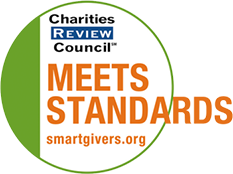by John Stanton
Share
by John Stanton
Share

By Stephanie Kocer
There was a time in the not too distant past when developmental delays often went unnoticed in children. Some babies and toddlers were never even screened for delays, while others who were screened were not directed to the right resources to be fully evaluated. And many parents didn’t know how important these screenings were.
An initiative in Colorado’s Grand and Jackson counties is putting a stop to that. The Meeting Milestones Initiative is a program designed to help young children and their families track key developmental milestones. And it’s being done through a new app developed by the counties.
In an effort to get doctors, child care providers, therapy providers, and schools on the same page, Meeting Milestones is working to meet a federal mandate requiring early intervention for children with developmental delays. The first of its kind, the app is a quick and easy way to administer screenings electronically and share results with your child’s doctor and other important parties. If you have detected any delays on the app once you’ve recorded the screenings, there is a clear system of checks and balances to make sure your child gets the help they need.
Detecting delays and providing necessary therapies early on to help children catch up can not only help with a key period in time for brain growth, but also reduces the need for special education services later in life.
The app works as a sort of questionnaire in a serious of age-specific checklists that take parents only 10 to 15 minutes to complete. Questions include things like “Does your child stack three small blocks or toys on top of each other by herself?” and “Does your child play with a doll or stuffed animal by hugging it?” The scoring system flags children who may not be hitting these milestones on time and can be refer them for comprehensive evaluations. Evaluations are usually given at the doctor’s office, but are also sometimes offered at schools or other community locations.
Grand and Jackson counties’ app isn’t the only of its kind, either. In 2015, Duke University developed the Autism & Beyond app with the help of Apple’s ResearchKit app. With the app, Duke researchers used a similar questionnaire and video technology to analyze emotions of children to one day automate the screenings for conditions like autism and anxiety.
Cognoa, a pediatric behavioral health company, also developed an app that can determine whether a child is at risk for developmental delays or autism by using machine learning algorithms developed by Harvard and Stanford Medical schools. Parents answer questions about their child’s behavior and upload short videos of some of the child’s natural behavior like playtime or interacting with siblings. Cognoa then provides a personalized report parents can share with their doctors that identified specific areas where their child is doing well, and areas where the child might need early intervention.
The Individuals with Disabilities Education Act requires that intervention services be provided to infants and toddlers with disabilities or certain developmental delays. The law also requires special education services for preschool-aged children with disabilities.
To learn more about Colorado’s Meeting Milestones Initiative, head to http://www.gcruralhealth.com/Programs/HealthyGC2020/MeetingMilestones.aspx
STAY IN THE LOOP








